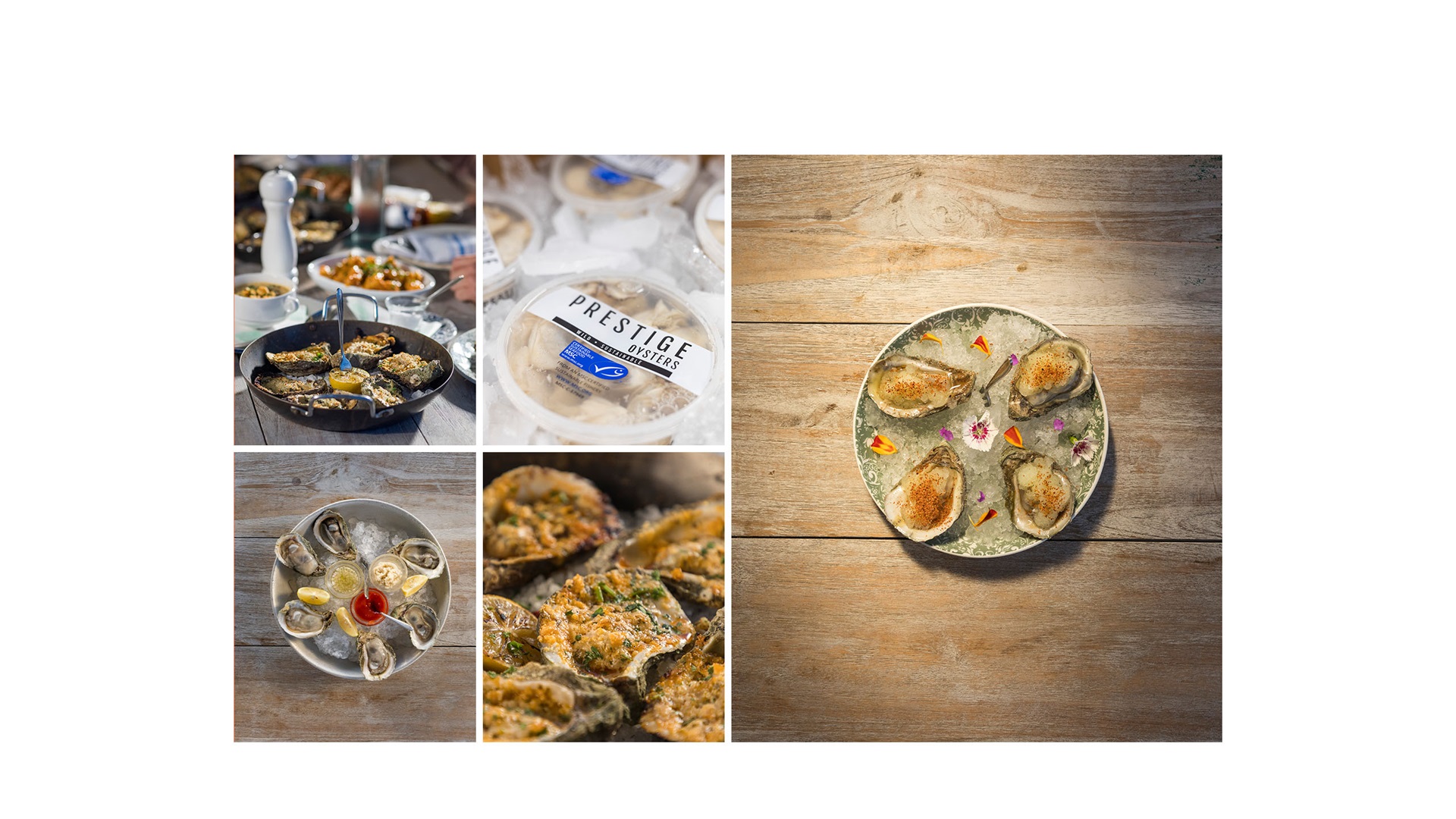When a natural disaster destroyed Galveston Bay in 2008, Prestige Oysters, the first MSC certified oyster fishery in America, knew they had to act.
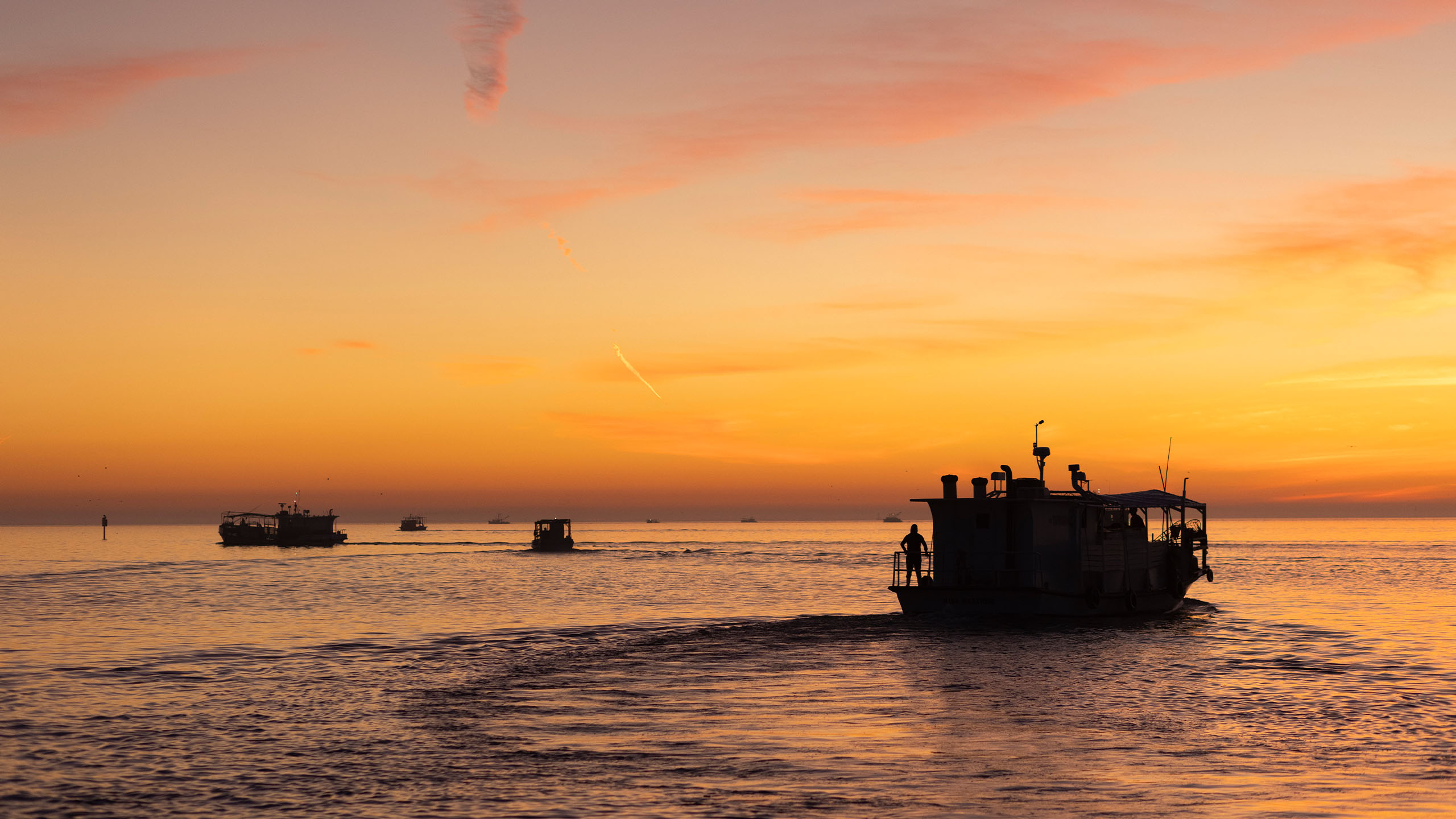
In sunny San Leon, winter looks a little different—warm winds blow across a palm tree-lined coastline and the Gulf water remains surprisingly mild to the touch. Mounds of sun-bleached half shells glint along the gravel road leading up to Prestige Oysters, the first MSC certified oyster fishery in America.
For the fishermen at this multi-generation, family-owned business it’s the start of a busy season harvesting the wild oysters of Galveston Bay. Nearly 27,500 pounds of oysters are caught and immediately processed daily at this location—for context, that’s over two times the weight of an elephant!
However, the ability to sustainably fish for oysters and many other key species in Galveston Bay was challenged by a major natural disaster: In 2008, Hurricane Ike hit the coastal communities of Texas and Louisiana.
The tropical cyclone, responsible for 195 deaths and nearly $37.5 billion in damage across the Southern United States and Greater Antilles region of the Caribbean, severely impacted the local wild oyster populations. The hit this critical keystone species took had devastating effects on the local marine ecosystem and threatened the livelihoods of local commercial fishermen.
To survive, the Halilis—the family at the helm of Prestige’s operations—had to adapt and overcome.
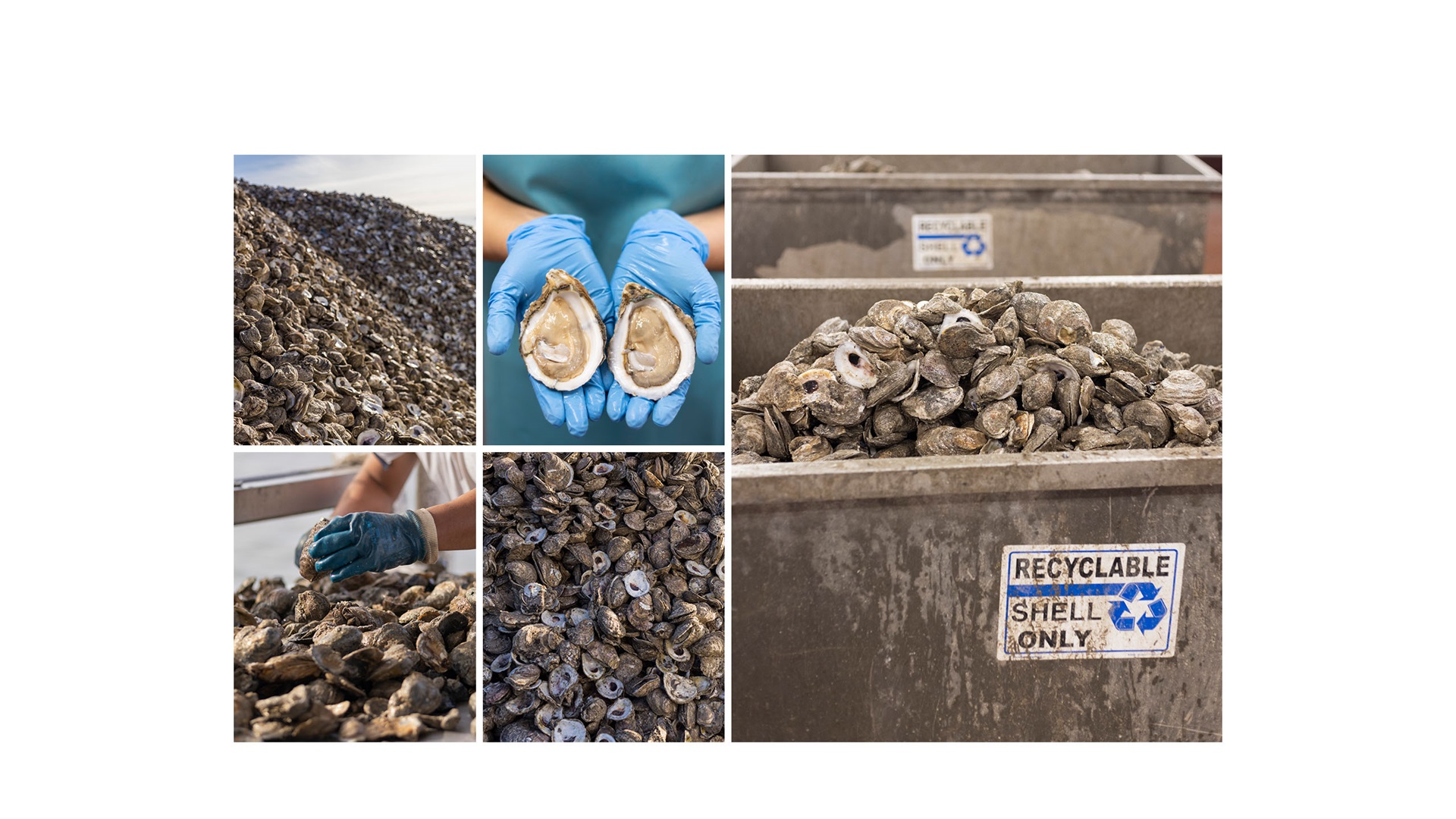
A Leader in Gulf Coast Sustainability
Immediately, they saw a need to rebuild oyster reefs that had been ravaged by Ike.
“Prestige Oysters has always had sustainability at its core, within our values and how we do things, including recycling half-shells,” Raz Halili, Vice President of Prestige said. “In 2009, after Hurricane Ike silted over 80% of our oyster reefs and devastated the larger Galveston Bay, we saw a need to build up our private reefs.”
When an area becomes “silted”, large amounts of silt—a solid, dust-like sediment transported by water—fill up and block the reef, severely impacting and oftentimes harming the local marine ecosystem. The Halilis knew that to start rehabilitating the Bay and their oyster reefs, they needed to take significant action.
To begin rebuilding, they purchased the components of cultch, a substrate consisting of limestone, concrete, and river rocks that they then supplemented with recycled shells from their processing facility. The shells are placed out to bleach in the sun for 6-8 months, then crushed and added to the mixture.
Once enough material was gathered, they deposited 20,000 pounds onto one of their private oyster beds. The mix, which forms a solid rock foundation, allows the oyster spat—juveniles—to attach to and grow into viable oysters for human consumption. These fortified beds supported an explosion in population growth, and since 2009, they've set 290,000 tons of cultch, in addition to their recycled shells.
“It was the green light we needed to move forward with continuing to restore our reefs,” says Raz. “It was the change that we really needed to bring [the fishery] back from the brink of destruction.”
Supplying the Only MSC Certified Oysters in America
Although the Halilis are using human intervention to improve the health of their oyster beds, Prestige is still considered a wild oyster fishery—a rarity in the U.S.
About 95% of oysters consumed in U.S. restaurants are farm-raised. By sustainably dredging their oyster beds—an action like raking the top layer of leaves off a lawn—they can provide an ocean-friendly wild-caught alternative to shellfish lovers across the nation. As operations grew nationally, Prestige wanted to find a way to message this strong commitment to sustainability to environmentalists and oyster enthusiasts alike.
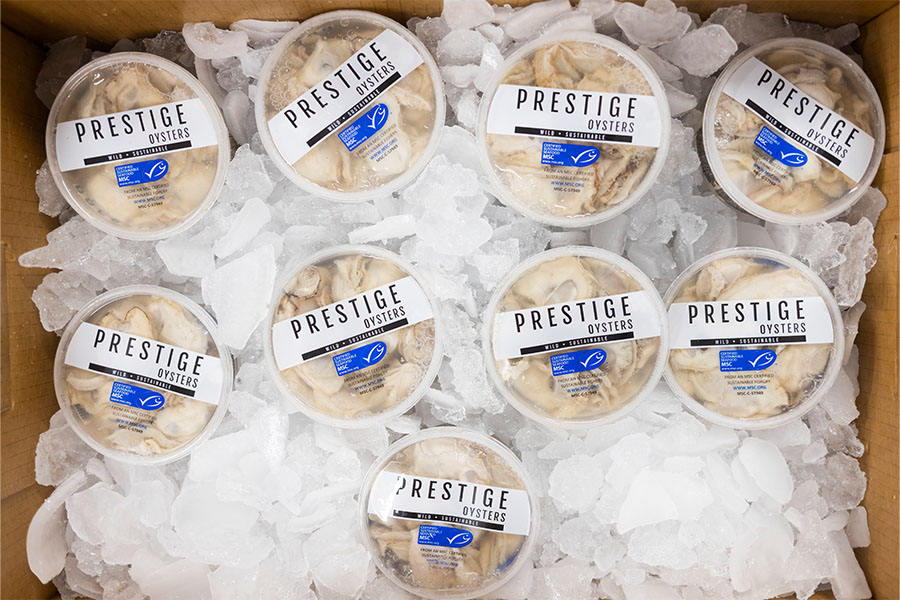
“We were searching for an organization like the MSC as a way to help our consumers feel comfortable about the oyster they’re eating. They see that this is an independent, third-party organization putting their stamp of approval on our fishery’s sustainability efforts.”
Prestige Oysters
When the fishery first entered assessment in 2018, there was little doubt that they would achieve certification, thanks in large part to their innovative reef rebuilding efforts. They even received active support during the public comment period—a time stakeholders typically choose to raise objections they may have about a fishery’s certification.
The fishery officially achieved certification in 2019, a move that allows them to carry the MSC blue fish label on their product—an easy way for consumers to identify certified sustainable seafood while shopping. As they look to increase the number of sustainable oyster options in grocery stores, this ecolabel will become an increasingly important market differentiator.
Keeping the Sustainability Legacy Alive
Sustainable fishery management comes in many forms. For Prestige, it means keeping the business in the family, and sustainability at the heart of their work.
In fact, it always has.
After immigrating from Albania to Chicago in the 1970’s and working several odd-jobs, Johnny Halili traveled south and began work as a deckhand along the Louisiana coastline. His sheer determination and work ethic over the years paid off; during the next few years he purchased his first boat, married his capable deckhand Lisa, and together they began laying the foundation of what would become Prestige Oysters.
The Halilis brought their son, Raz, into the family business at a young age. As he spent his childhood summers catching shrimp and winters dredging for oysters, it soon became apparent that he had inherited both their love for fishing and passion for environmental stewardship. As Raz’s own family grows, he hopes to pass on his deep love of and respect for the Bay for generations to come.
This desire to protect the environment while also providing fresh and delicious wild-caught oysters to their community has forever shaped the Halili legacy into a commercial American success story deeply rooted in sustainability.
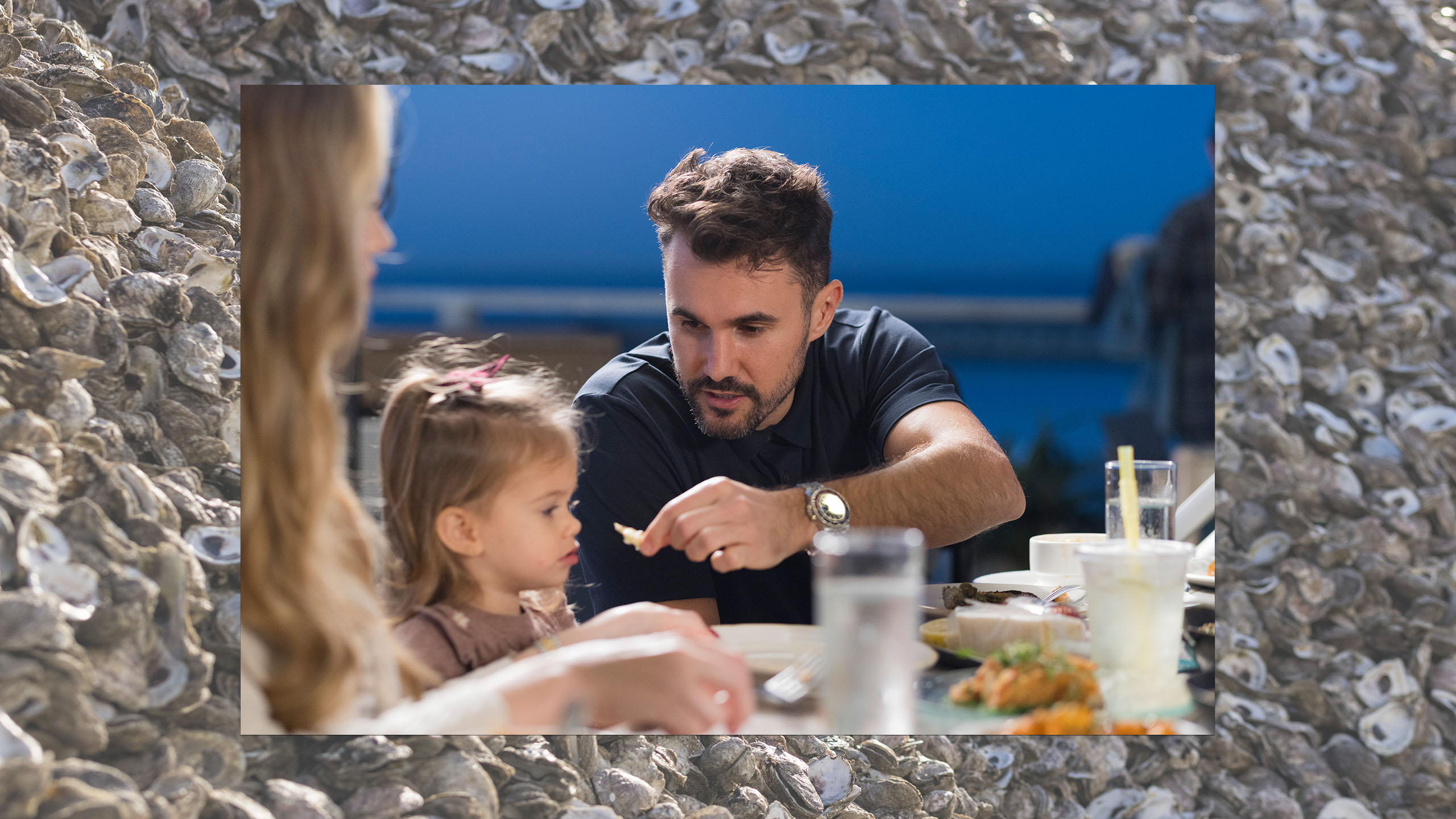
Building a More Sustainable Seafood Supply Chain
A trait that sets Prestige—and other MSC certified fisheries around the world—apart is a deep desire to center the ocean’s health within traditional business operations, rather than as an afterthought. Many fisheries, who voluntarily go through the certification process, choose to do so in order to penetrate new markets and to compete in an increasingly conscious consumer market.
Every time a seafood consumer makes the switch to MSC certified sustainable seafood, the market rewards those fisheries who have committed to sustainable fishing practices, and the brands who are committed to making truly sustainable seafood accessible to everyday Americans. By indirectly providing a financial incentive for companies to continue sourcing from sustainable options, these consumers play an active role in shaping a healthier future for our ocean.
Prestige Oysters may have been the first wild-capture oyster fishery to achieve MSC certification in America, but their sustainability story is far from over. As they look ahead into what the future might hold for them, one thing is certain: if they continue to treat Galveston Bay with respect and care, their family will be able to continue to fish for generations to come.
